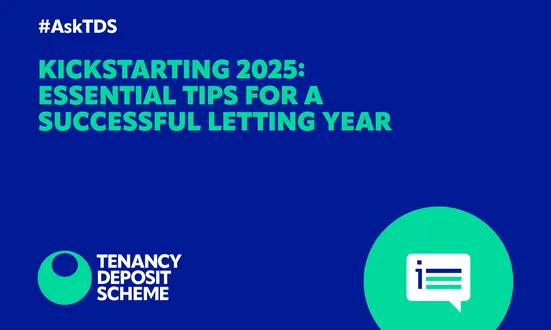The new government’s planned Renters’ Rights Bill, announced in the King’s Speech will honour many of the pledges made by the previous Government – however, there are significant differences. NRLA Chief Executive, Ben Beadle, explains what’s in, what’s out, and what the NRLA wants to see happen next.
We awaited the King’s Speech with bated breath.
While Labour said it was willing to back the last Government’s Renters’ (Reform) Bill had it made it to ‘wash up’ ahead of the election, we knew it was likely its own reform plans would look different.
As it was, its newly announced Renters’ Rights Bill will, in fact, keep many of the pledges made by the Conservatives. The Bill promises to:
- End Section 21, the so-called ‘no fault eviction’ – and provide ‘new clear and expanded possession grounds’ so ‘landlords can reclaim their properties when they need to’.
- Apply a Decent Homes Standard to the private rented sector.
- Create a digital private rented sector database with information for landlords, tenants, and councils.
- Set up a new ombudsman service that will provide fair, impartial and binding resolution to both landlords and tenants, reducing the need to go to court.
- Giving tenants the right to request a pet, with landlords able to request that tenants have suitable insurance to cover potential damage by pets.
- Making discrimination against tenants in receipt of benefits or with children illegal when choosing to let.
What’s new?
The Government also announced new plans, to:
- Extend Awaab’s Law to private renting – setting clear timeframes within which landlords must make homes safe where they contain serious hazards.
- Strengthen tenants’ rights, including: the ability to challenge rent increases at Tribunal and ending rental ‘bidding wars’.
What’s missing?
In short, what’s missing now is detail.
New ‘clear and expanded possession grounds’ allowing landlords to ‘reclaim their properties when they need to’ sound positive, but we need to know what these grounds will include.
While the previous Renters (Reform) Bill included a commitment to publish a review of the performance of the courts before the loss of section 21 for existing tenancies, there is no suggestion that the Government will honour this, something we have serious concerns about.
The previous administration’s promise to include a moratorium that would essentially prevent tenants from handing in notice during the first six months – hard won by the NRLA – has also been abandoned, although, as yet, we don’t know what will replace it.
Labour had gone on record saying it would axe the so-called ‘no fault eviction’ immediately – although with the Bill not yet listed for discussion when parliament returns in September, it’s not entirely clear what ‘immediately’ means.
What is the NRLA doing?
Here at the NRLA, we continue to campaign vigorously for the landlords we represent – and for reform that works for all.
I met with the new housing minister, Matthew Pennycook shortly after the election, and stressed that the Government must ensure reforms are fair, workable and sustainable for responsible landlords, as well as renters.
I emphasised to Mr Pennycook – who will lead on rental reform – that reform cannot work without improvements to the courts, as well as the need to give landlords sufficient time to prepare for change when it comes to section 21, will a phased change necessary.
The need for special dispensation for student landlords is also necessary if we want to protect the supply of such homes.
The Minister was largely supportive of the previous Bill, including the need for robust repossession grounds for landlords and special provisions for the student market – which NRLA believes are positive signs.
Likewise, the new Housing Secretary, Angela Rayner, has gone on record as noting that she wants the Government’s Bill to “give protection and security to tenants, as well as responsible landlords.”
What I would stress is that it’s vital that we are around the table for discussions that will ultimately shape the way homes are rented in the years to come and will work constructively with the Government as it continues to develop its plans.
I would remind landlords that while the government may have changed, support from the NRLA has not and that we will continue to campaign and provide the resources needed to run a successful and compliant business – whatever lies ahead.
How can you keep up to date?
- Stay updated on the new Renters’ Rights Bill on our social media channels and on our campaigns pages here.
Exclusive savings for TDS and NRLA customers
Register your deposits with The Tenancy Deposit Scheme and become an NRLA member to SAVE 33% on TDS Insured and enjoy £15 OFF NRLA membership. Click here to join today.

About the author

Ben Beadle is chief executive of the National Residential Landlords Association (NRLA), the UK’s largest trade body for landlords.
A landlord himself since the age of 20, Ben started out as property manager before working his way up through the ranks at the Tenancy Deposit Scheme.
He was then Operations Director at property management business Touchstone before overseeing the merger of the National Residential Landlords Association (NLA) and Residential Landlords Association (RLA) to create the new trade body earlier this year.
His key aims as head of the organisation are to strengthen the voice of landlords in Westminster and Cardiff, to improve the reputation of landlords in the media and to support members through information, training and accreditation.
NRLA: The NRLA updates landlords on all the latest legislation changes affecting the sector and offers expert advice, training and other exclusive services and benefits.
The views expressed in this content are solely those of the author alone and do not necessarily represent the views of TDS, its officers, or employees. To read more on TDS views, visit our Policies & Procedures webpage.
Other news stories


